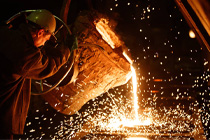окт. . 16, 2024 18:29 Back to list
Effective Insulation Solutions for Piping Systems to Enhance Energy Efficiency
High-Quality Insulation Materials for Pipes Ensuring Energy Efficiency and Protection
Proper insulation of pipes is crucial in various industrial, commercial, and residential applications. High-quality insulation materials play a vital role in maintaining energy efficiency, preventing condensation, and protecting pipes from extreme temperatures. This article explores the various types of insulation materials available for pipes, their benefits, and how to select the right one for your needs.
Importance of Pipe Insulation
Insulating pipes is essential for several reasons. First and foremost, it helps in minimizing heat loss in hot pipes and heat gain in cold pipes. This is particularly important in heating and cooling applications, where energy efficiency is paramount. Proper insulation can lead to significant energy savings, translating to lower utility bills.
Secondly, insulating pipes helps prevent the formation of condensation. In humid environments, uninsulated cold pipes can attract moisture, leading to corrosion and mold growth. Over time, this can result in costly repairs and health issues.
Finally, insulation also serves as a protective barrier for pipes against external factors. Insulated pipes are less susceptible to damage from environmental elements, temperature fluctuations, and mechanical impacts. This increased durability ensures a longer lifespan for the plumbing infrastructure.
Types of Insulation Materials
A variety of materials can be used for pipe insulation, each with distinct properties and benefits. Here are some of the most commonly used high-quality insulation materials
1. Fiberglass Insulation Fiberglass is one of the most popular choices for pipe insulation. It offers excellent thermal resistance and is available in pre-formed shapes, making it easy to install. Fiberglass is also resistant to moisture and non-combustible, which adds an extra layer of safety.
2. Foam Rubber This insulation material is flexible and easy to install. Foam rubber is particularly effective at preventing heat loss and condensation. It typically comes in roll form, making it suitable for various pipe diameters and applications.
3. Polyethylene Foam Lightweight and cost-effective, polyethylene foam provides good thermal insulation properties. It's resistant to moisture and does not promote mold growth. This makes it ideal for both hot and cold water pipes in residential settings.
4. Mineral Wool Insulation Also known as rock wool, mineral wool is another excellent insulator. It offers high-temperature resistance and soundproofing qualities. Mineral wool is particularly useful for pipes in industrial applications where higher temperatures are involved.
high quality insulation materials for pipes

5. Aerogel Insulation Known for its incredible thermal resistance, aerogel insulation is one of the most advanced materials available. It is lightweight and extremely effective at reducing heat transfer. Although it is more expensive than other options, its performance can be beneficial in specialized applications.
6. Reflective Insulation This type of insulation uses reflective surfaces to reduce radiant heat transfer. It is often used in combination with other insulation materials, especially in hot climates. Reflective insulation helps keep pipes cooler and minimizes energy loss.
Selecting the Right Insulation Material
When choosing the best insulation material for your pipes, consider the following factors
- Temperature Range Determine the temperature variations the pipes will experience. Choose an insulation material that can withstand these conditions without degrading.
- Moisture Exposure If the pipes are located in humid or wet environments, opt for moisture-resistant insulation to prevent mold and corrosion.
- Installation Process Some insulation materials are easier to install than others. Choose a material that fits your installation capability and the specific requirements of your project.
- Cost While high-quality insulation materials can be more expensive upfront, consider the long-term savings on energy bills and maintenance costs.
- Environmental Impact Opt for insulation materials that are environmentally friendly and have a lower carbon footprint, contributing to sustainability efforts.
Conclusion
Investing in high-quality insulation materials for pipes is essential for energy efficiency, protection, and longevity. From fiberglass and foam rubber to advanced materials like aerogel, there are various options to suit different applications and budgets. By understanding the importance of pipe insulation and carefully selecting the right material, property owners can enhance energy efficiency, prevent costly repairs, and ensure a sustainable future.
-
SWRCH35K High-Quality Steel Wire Rods - Reliable Manufacturer & Supplier
NewsJun.24,2025
-
High-Quality Fe-C Alloy Leading Manufacturers & Spherical Alloy Materials Supplier
NewsJun.10,2025
-
Premium Low Nitrogen Recarburiser Supplier & Manufacturer – High Quality Exporters
NewsJun.10,2025
-
DT4 High-Quality Magnetic Materials Leading DT4 Manufacturer & Supplier
NewsJun.10,2025
-
High-Performance Spring Steel Suppliers Custom Solutions
NewsJun.10,2025
-
Premium SWRCH6A Manufacturer Steel Wire Supplier & Factory
NewsJun.10,2025
